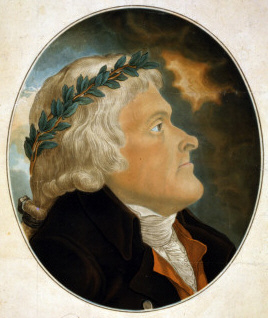More on the “Moral Sense”
Here are two more references I have come across in regard to the faculty of a “moral sense.” I see this as a subject that is related to “anticipations” in terms of there being a faculty of “recognizing” or “perceiving” issues that are denominated as “moral.” Prior posts on this topic are here. The key point is not that we are born with a faculty that *contains* high-level moral concepts (such a capitalism, socialism, marxism, altruism, etc., ad nauseum). Rather, we are born with a faculty that *perceives* relationships of a “moral” type. After that, our sense of pain/pleasure can then give their input on those relationships, and our reasoning processes can process the contexts and issues and then reach conclusions those issues. To state this in other way, this faculty would not pass on whether a perceived relationship is “moral” or “immoral” or “right” or “wrong.” Instead, the faculty allows the recognition of relationships that would not otherwise be recognized. The analogy is to hearing — the sense of hearing does not tell you whether you are listening to Mozart or chalk on a blackboard. If your faculty of hearing did not exist, your sense of pain/pleasure would never evaluate the sound, and your reasoning mind would never calculate how to reproduce those sounds. At the ultimate base, the view is that we are not born with “ideas,” but with faculties that operate according to principles applicable to that faculty. As Jackson Barwis explains it in “Dialogue on Innate Principles,” we aren’t born with “ideas,” but with faculties that operate according to “principles.” Properly defined and understood, “ideas” and “principles” are very different things.
With that intro, here are two quotes I have not seen previously. Again, do not evaluate the precise conceptual argument being made, but drill down and refer to the thinking process and their use of the term “moral sense.”
First is a quote from Thomas Jefferson:
Jefferson’s point seems to be that the observation of free movement as a “natural right” does not begin with calculation, but with recognition by the “moral sense” (which provides data that the pain/pleasure faculty evaluates as pleasurable and reason validates as conducive to happy living).
Likewise, Wright’s point could be read to mean that we perceive through a “moral sense” (as stated in PD1 and the letter to Menoeceus) that “gods” are significant to us because of their power. Our faculty of pain/pleasure evaluates as pleasurable the view that gods are immortal and calm, and our reason validates that the immortality and calmness of the gods are consistent with that status.

